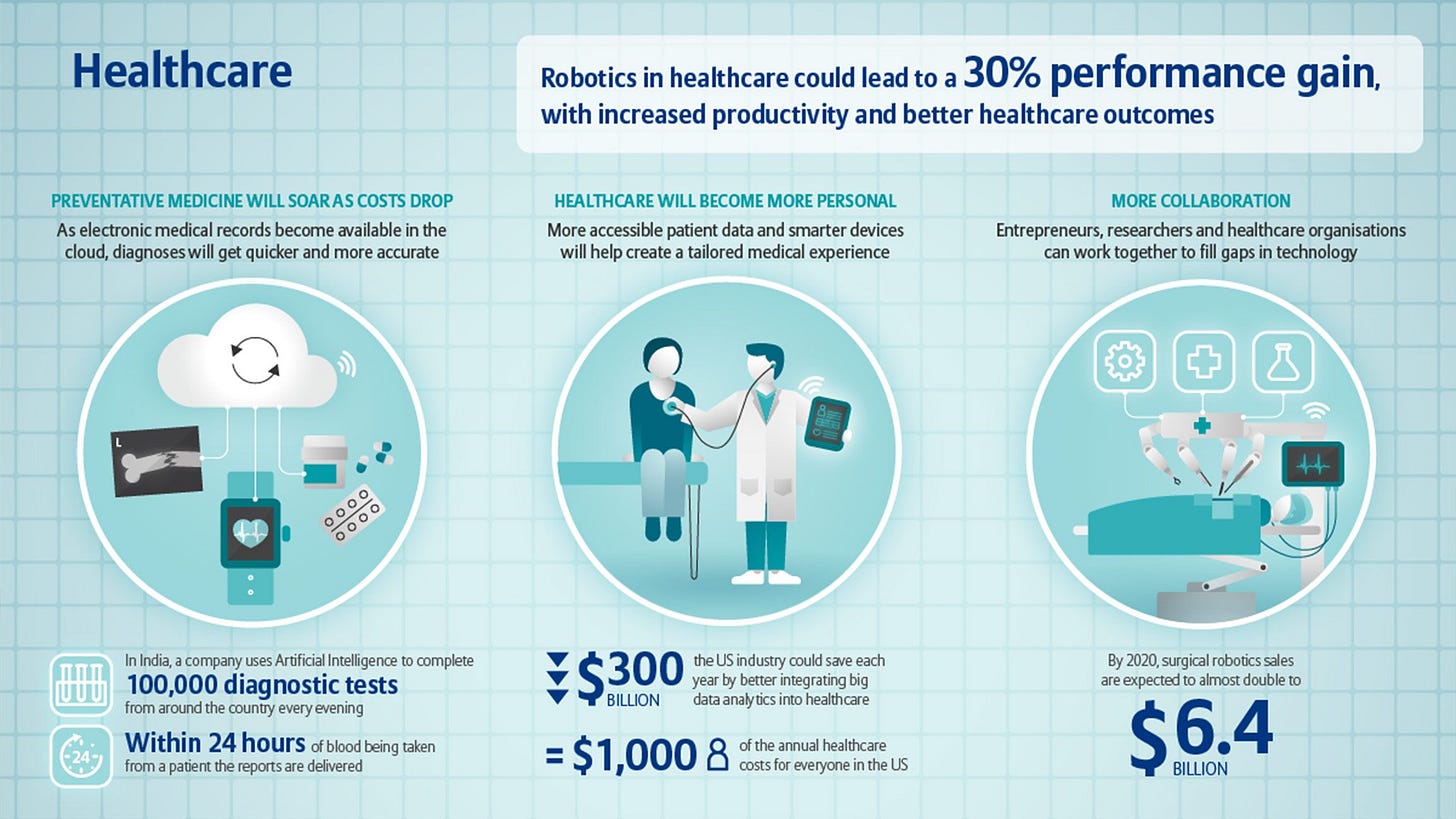🚀 AI Transformations in Healthcare: From Enhanced Dental Diagnostics 🦷 and Neurosurgery Efficiency 🧠 to Ethical AI in Consent ✍️ and Smart IoT in Emergency Care 🚑
Supplement to The 'Med AI' Capsule Newsletter 🤖🩺🚀
Dear Med AI Enthusiast,
Welcome to this fortnightly special feature, a curated blend of academic and industrial insights, complementing The 'Med AI' Capsule, your fortnightly news digest. 📰
Dive into the transformative world of artificial intelligence and emerging technologies shaping the future of medicine. ⚕️
Stay ahead with insights from our exploration of how these advancements are redefining healthcare. 🚀
In today’s supplement:
5 Med AI & Emerging Tech Research Updates
1 Infographic
Industry Showcase
Reading Time: 5-7 minutes
Med AI & Emerging Tech Research Updates 🔬
1. 🤖 AI-Enhanced Detection of Dental Caries Using QLF Images: A Leap in Precision Diagnostics 🦷

Key Findings: Utilizing a convolutional neural network (CNN) model for analyzing quantitative light-induced fluorescence (QLF) images, this study achieves significant accuracy (83.2%), precision (85.6%), and sensitivity (86.9%) in detecting dental caries in permanent teeth, with notable enhancements following tooth area segmentation.
Conclusion: The research highlights the potential of AI in enhancing the accuracy and efficiency of dental caries detection. The use of the Xception CNN model on QLF images shows promising results, offering a more precise and reliable method for dental diagnostics.
Limitations: The study notes key limitations, such as a dataset mainly comprising posterior teeth, no assessment of AI performance by caries severity, and the necessity for advanced automatic segmentation models to broaden AI's scope and clarity in dental applications.
2. 🧠 Enhancing Neurosurgery with AI: Computer Vision for Surgical Instrument Identification 🔍

Key Findings: This study applied computer vision to identify surgical instruments in neurosurgery, achieving 80–100% accuracy for most instrument types. However, certain forceps, like Adson and Debakey, showed lower accuracy.
Conclusion: The application of CV in neurosurgery demonstrates a significant potential to optimize surgical procedures. By accurately identifying surgical instruments, the technology could reduce unnecessary tool usage and surgical waste, leading to more efficient and streamlined operations.
Limitations: The study's limitations include image collection in a non-clinical setting, not reflecting the real operating room environment, and a limited scope of the instrument dataset.
3. 🤖 AI vs Traditional Methods in Informed Consent for Coronary Angiography: A Comparative Study ❤️
Key Findings: This research compares traditional informed consent (IC) methods with an AI-powered chatbot, chatGPT, for coronary angiography (CAG) patients. The AI-assisted approach significantly improved patients' understanding of CAG risks while maintaining satisfaction levels equivalent to traditional methods.
Conclusion: AI, particularly in the form of chatbots, can effectively support the informed consent process in healthcare, enhancing patient comprehension without adding additional workload to healthcare professionals.
Limitations: The study's scope may be limited due to a small sample size and the use of self-reported data, which could introduce bias. Additionally, the research was possibly confined to a single hospital setting, potentially affecting its generalizability.
4. 💊 AI-Driven Nudges for Medication Adherence: Insights from a Human-Centered Design Study 🤖

Key Findings: This study delves into developing an AI-driven digital nudge tool to improve medication adherence. It involved healthcare providers and patients in understanding needs and crafting solutions. The study highlights the effectiveness of personalized reminder nudges and healthcare worker contacts and the unsuitability of incentive-based nudges.
Conclusion: The study suggests that an AI-driven nudge tool, tailored to individual needs and preferences, can potentially enhance medication adherence. Incorporating feedback from both healthcare providers and patients is crucial for its success.
Limitations: The study's scope was limited to a single institution and primarily involved a specific group of healthcare professionals and patients, potentially affecting the diversity of insights and generalizability of results.
5. 💻 IoT-Driven Smart Chest Pain Center: Revolutionizing Emergency Care with Deep Learning 🚑

Key Findings: The IoT-driven chest pain center successfully automates patient data management, reducing processing times from over 30 minutes to a few minutes and decreasing the workload for medical staff.
Conclusion: The IoT-based system enhances the efficiency and quality of emergency care in chest pain centers, optimizing workflow and improving patient outcome management. Its successful implementation in Liaoning Provincial People's Hospital demonstrates its potential for transforming emergency medical services.
Limitations: The system's effectiveness is challenged by the complexity of Chinese electronic medical records, necessitating further AI algorithm development for more efficient data extraction and analysis.
Infographic 📊
Industry Showcase 👨🏭
Atomwise - developed a machine learning-based discovery engine that combines the power of convolutional neural networks with massive chemical libraries to discover new small molecule medicines.
ClosedLoop - helps healthcare organizations improve outcomes and reduce unnecessary costs by utilizing AI to predict individual health risks, enabling proactive interventions and cost-effective treatments.
Anatomiz3d - specialize in medical 3D printing solutions and surgical implants, utilizing cutting-edge 3D printing and bioprinting techniques. They collaborate with healthcare institutions, such as Apollo Hospitals, to produce 3D-printed implants for surgeries.
Stay tuned for our upcoming editions as we explore the latest breakthroughs and dive deep into the transformative power of artificial intelligence and emerging technologies, shaping a healthier future. 🚀
Warm regards,

P.S.: If you're a medical professional intrigued by artificial intelligence, but not sure where to start, feel free to reach out to me for personalised guidance.
You can also check out and join our vibrant educational WhatsApp Community for Medical Professionals.







